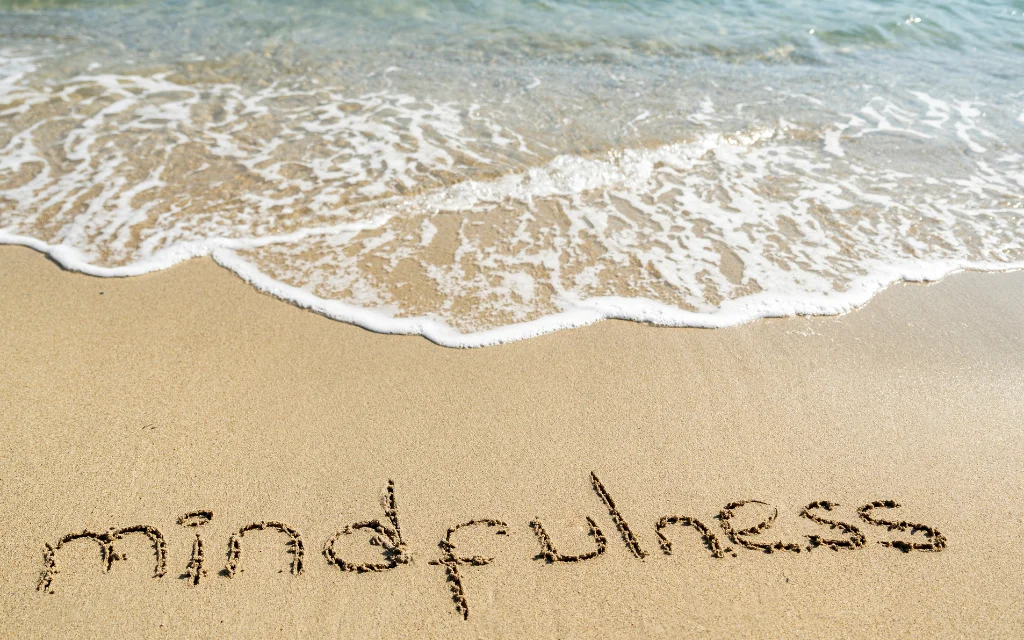I had no idea what “mindfulness” was until I started seeing it everywhere I looked over two years ago.
I kept coming across blog entries with headings like “How Mindfulness Can Help You in the Bedroom,” “How Mindfulness Can Help You at Work,” and “How Mindfulness Can Help You in Relationships.”
After that, I watched a brief video that described mindfulness. The narrator, who was a monk, was discussing how coffee tastes much better when you consider the people who produce the beans, harvest them, and all the other ingredients that go into preparing your everyday cup of coffee.
From what I was reading on popular culture websites, it seemed that mindfulness was the magic bullet that would fix every issue in life. Despite my skepticism and lack of knowledge, I made the decision to remain open-minded and investigate the concept of mindfulness.
Everything just “clicked” for me, so it was a quick and simple sale for me as soon as I started practicing.
I have discovered that people do not always have the same experience, even though I try to urge everyone to give it a try. In the event that you are considering giving up or trying the practice, I hope this will inspire you to keep going.
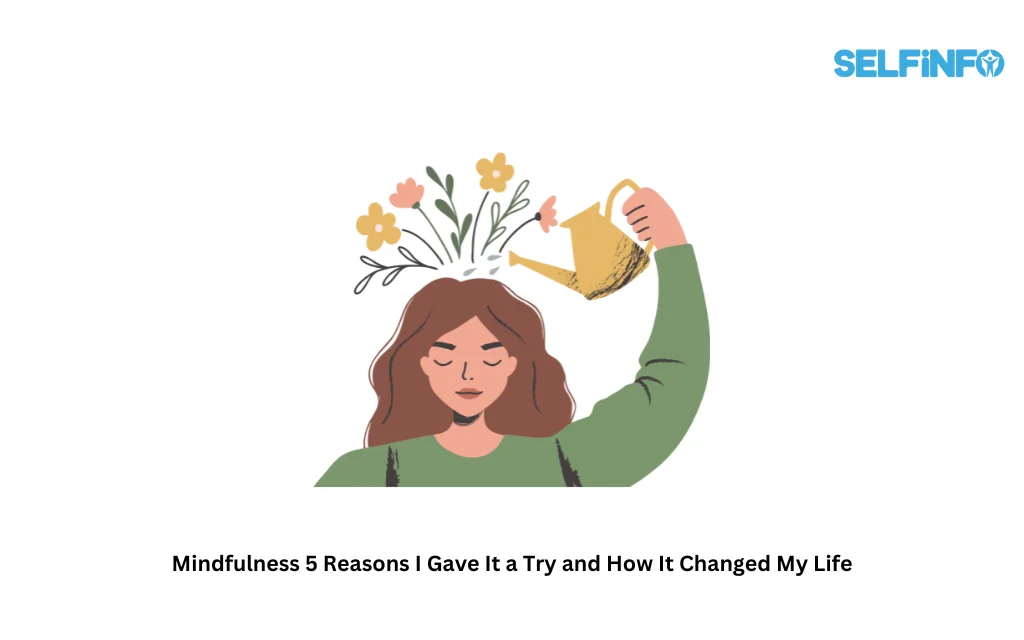
1. Time is our most valuable currency, and we can’t waste it.
At the age of 26, I received a diagnosis of congestive heart failure in June 2012, and the physicians informed me that my chances of living for more than a year were minimal. Five years later, I am still here and have had the opportunity to see my son develop into a remarkable young man. My doctor is amazed at how much my heart has returned to normal.
Since tomorrow is not certain, I told myself that I would make the most of every day of my second chance at life and try to squander as little time as possible.
Although I am aware that my circumstances are somewhat more severe than others, I think we can all support this. All of us have experienced unanticipated tragedy in our lives, such as losing a loved one, a job, or a relationship. We must make the most of today because we cannot guarantee tomorrow. I believed I was doing just that until I learned about mindfulness.
I had never even asked myself some of the questions that surfaced in my first mindfulness training since I was unaware that they were important to ask.
- When was the last time I sat with the sense that I was grounded on Earth by gravity alone?
- Every day of the week, twenty-four hours a day, I breathe, but how frequently do I realize it?
- How many times do I get caught up in my thoughts and drive from point A to point B without observing a single aspect of my experience?
I felt like I was living each day to the fullest throughout the past five years, yet I was missing a lot. I drive to work without thinking, eat, talk, and do a lot of other things without thinking. To ensure that I do not miss anything, mindfulness helps me be totally present and involved in as many times of my life as possible.
2. Mindfulness is backed by science.
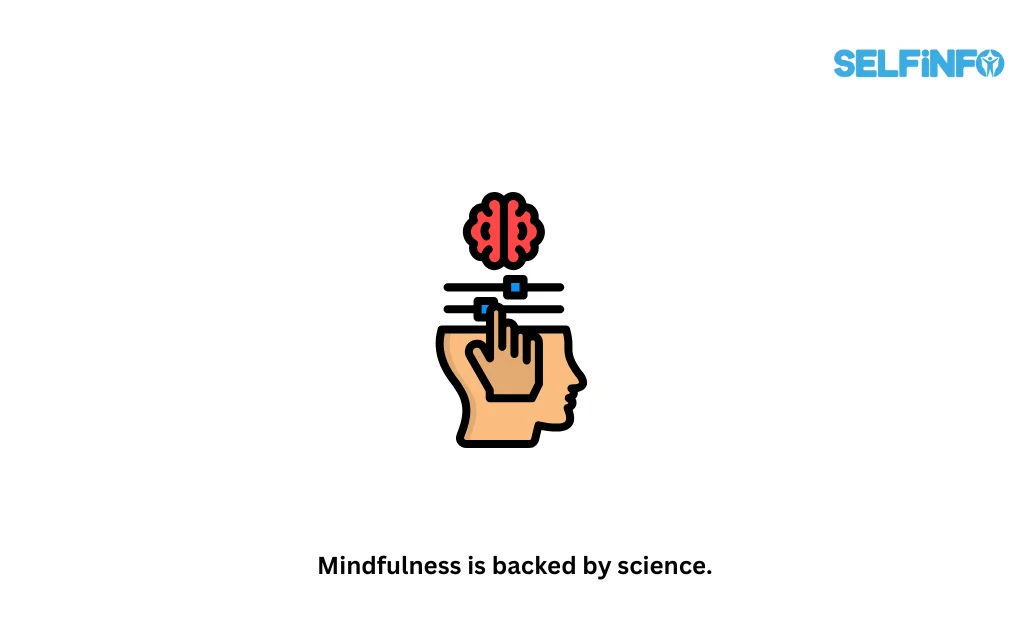
Throughout my entire life, I have been a very skeptic. Perhaps it has to do with the trust issues I had as a child. I learned from my father that if something seems too good to be true, it generally is.
I need extremely concrete proof and research with scientific backing that this thing will work before I am convinced to attempt anything new. As I already stated, I value my time greatly and will not waste it trying something for which there is no supporting data.
I discovered that I am fascinated by neuroscience about the same time as I discovered mindfulness. The prefrontal cortex is one of the brain’s most fascinating regions. Despite being the youngest, it also bears some of the most significant duties, such as:
- Control of emotions
- Control of impulses
- Regulation of the body
- Making sensible choices
- Empathy
- Relationships with others
- Self-awareness
The issue with humans is that the limbic system, or our innate reactionary reflexes, frequently takes precedence over the prefrontal cortex. Nonetheless, consistent mindfulness training strengthens that area of the brain, according to scientific research.
In essence, I know the weightlifting workouts I could perform if I wanted to strengthen my biceps. I would most likely do some cardio if I wanted to improve my stamina. Therefore, since mindfulness strengthens the prefrontal brain, I should practice it if I wish to increase all of the skills mentioned above. Even though I am a skilled debater, I will never contest scientific data.
3. My mind is a boat without an anchor.
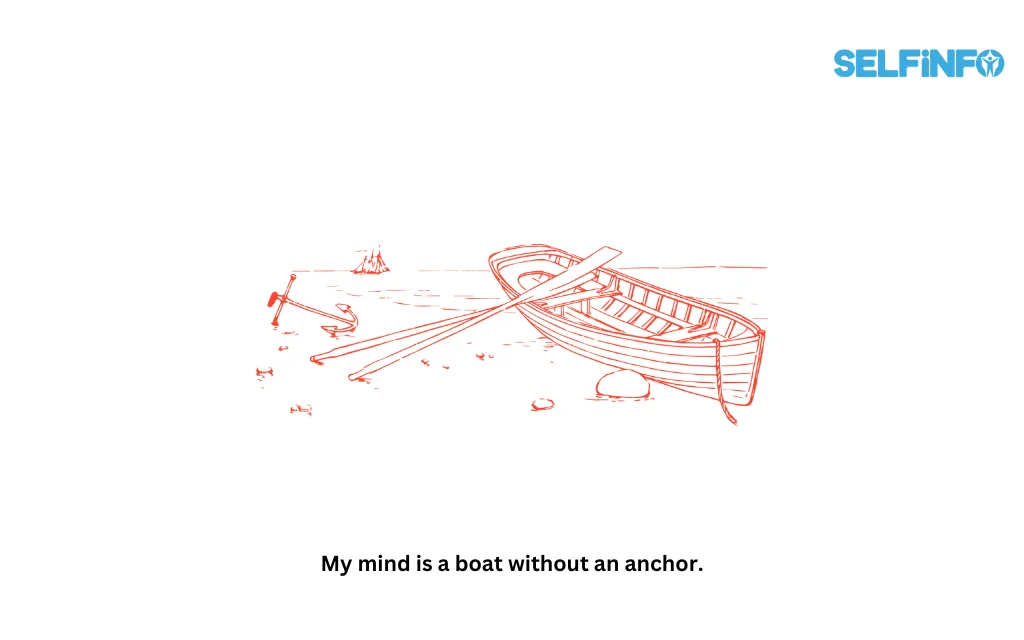
The issue with humans is that the limbic system, or our innate reactionary reflexes, frequently takes precedence over the prefrontal cortex. Nonetheless, consistent mindfulness training strengthens that area of the brain, according to scientific research.
I am one of those people who can not stop thinking. I have struggled with this since I was a young child. My brain is always planning, thinking of new ideas, and attempting to solve problems, but I do not think it is any kind of attention deficit disorder.
It is both a blessing and a curse. My brain is programmed to always consider how I may get better at what I am doing, which has helped me succeed at a variety of jobs. The problem is that there is a place and a time for this, and it can get me into some problems while I am working on a crucial assignment or having a conversation.
I also saw that occasionally, my thoughts would go to the most bizarre areas. After dozing off for a few minutes at my desk at work, I could find myself thinking about a scene from a 90s television program and wondering how I got there. It is similar to driving to the grocery store and then wondering, “How in the world did I get here?” when you get at the park.
Although it is very frequent, I always assumed that I was one of the few people who experienced this. My mindfulness taught me that it is okay for our brains to process tens of thousands of thoughts every day. When we fail to see where our ideas are leading us, it becomes an issue.
I can catch my thoughts before they get out of control by using anchors like my breath or anchor words like “thinking.”
I frequently remark that my mind no longer deviates from its path by five hundred miles, but rather by around five miles.
I have also been able to discover comedy in my own thoughts thanks to this, which has really helped me with issues related to my self-esteem.
An anthill can be swiftly transformed into a mountain by my thinking. For instance, when I came at work, I might have said, “Good morning!” to the receptionist, but she did not respond. I used to think things like, “Maybe she is furious at me,” “I wonder what I did wrong,” and “I wonder if I am about to get fired because nobody here likes me,” and would start overanalyzing the issue right away.
I can now catch my thoughts and just laugh to myself about where they go. Before, my mind would take a sharp turn toward the off-ramp that leads to crazy town.
4. Mindfulness helps you deal with emotions in a new way.
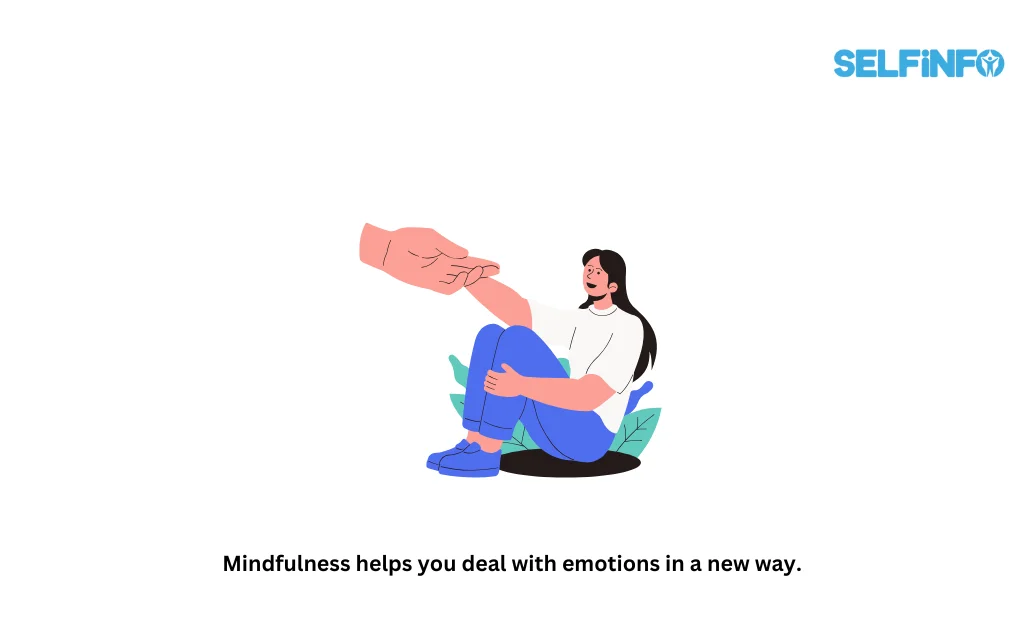
I instantly identified with one of my mindfulness instructors when he talked about how no one ever tells us as kids that life and emotions may be powerful. Since I was a little child, I have had trouble controlling my emotions. I FEEL things, not just feel them.
I visualize my feelings as a line with 0 at the middle, ranging from -10 to +10. Every emotion I experienced, whether pleasant or negative, was constantly at a -10 or +10, and I can get injured by either of them.
I knew I needed equanimity in my life, and learning about mindfulness helped me understand what it meant. I have always struggled with becoming depressed rather than merely sad. I would experience anxiousness instead of worry. Instead of getting upset, I would become enraged. And I would fall deeply in love with someone the moment I began to like them.
My other problem was that I would get too optimistic at a +10 due to my expectations, and if things did not work out, I would drop to a -10 because I was too optimistic.
It made sense because grasping might result in suffering, according to Buddhist doctrine. Whether the feelings were good or bad, I would clutch at them. This was like clinging to a hot coal for too long in both cases.
Perhaps I was allowing one incident from earlier in the day to spoil the remainder of my day. Perhaps my exciting after-work plans were keeping me from finishing my work. Being mindful enables me to just acknowledge my feelings and accept them for what they are at that precise moment.
With positive emotions, this is easier said than done, but what about negative ones? I also learn about impermanence and that no bad feeling will endure forever from this exercise.
I can now sit with my feelings, face them, and come to terms with them. My feelings can be compared to a leaf that is softly drifting past me in a stream. Knowing that my unpleasant feelings will eventually pass enables me to accept them without attempting to fight against what I am feeling at the time.
5. It helps my son.
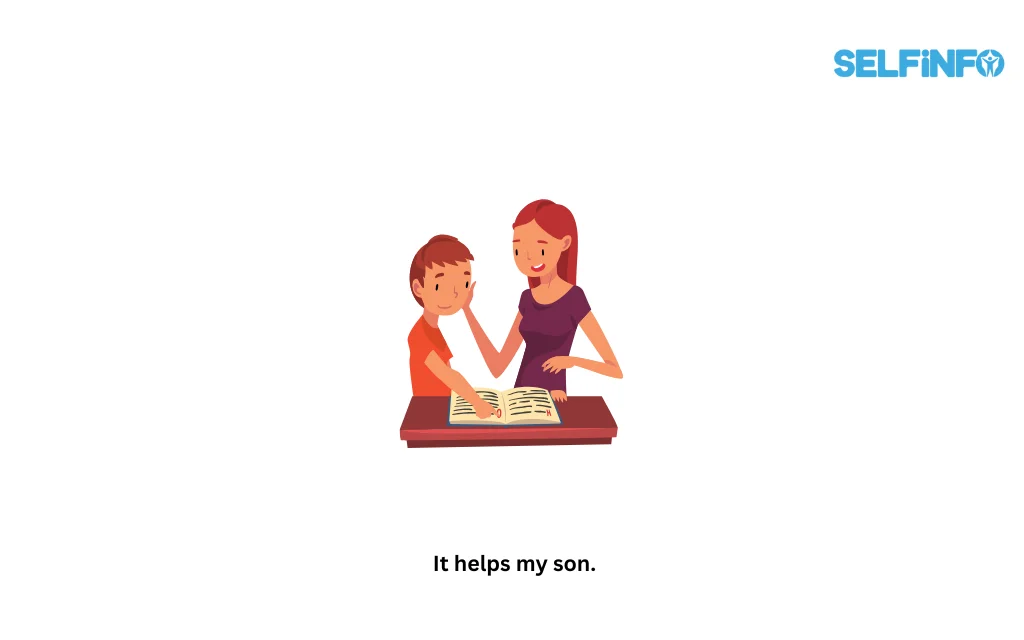
Being attentive helps me be a better parent and helps my son control his thoughts and emotions. As parents, we are constantly searching for activities to engage our kids in. After about six months of practice, I saw how helpful it would be for my kid to start practicing with me.
We were visiting my best friend in Southern California while on vacation. We took my son to the boardwalk, which had everything he enjoyed, on the final day of the trip. He could spend time at the beach, eat some junk food from the boardwalk, and play video games at the arcade. Sadly, he was having a terrible day, which began with an attitude issue and progressed to him crying uncontrollably.
On this final day of our trip, I had been doing everything I could to lift his spirits, but to no avail. We got some lunch because I believed he would be hungry. He was acting ungrateful, according to my thinking, which can make me react negatively. We tried the arcade since I feared we could be doing too many adult things, but it did not work. What went wrong?
He was fatigued, but he was unaware of it.
I must keep in mind that my son, who was seven at the time, lacked my expertise and experience.
Not only is it hard for him to express his thoughts to me, but he frequently does not even know what he is feeling because everything he is going through is new to him. He mentioned that he had not slept the night before and was really exhausted when we finally sat down and took a moment.
I began teaching him mindfulness as soon as we got back from that trip, and over the past nine months, I have witnessed a significant improvement in him. He has his own methods to help him relax, and he can recognize his feelings much earlier.
He uses his breathing to bring himself back to the present when he recognizes when he is worrying about the future. He enjoys sending kind thoughts and engaging in loving/kindness activities to his younger brother, friends, relatives, and occasionally total strangers. For his second-grade assignment, he even gave a lecture on mindfulness!
I used to believe that I was content and happy with my life, but with constant practice, it has greatly improved. I am learning more about life and myself every day.
I would probably stop practicing if I ever stopped growing, but my experience and others’ experiences remind me that we keep becoming better every day. Therefore, just keep going in the direction of enlightenment even if you are taking a break from your practice or are considering attempting mindfulness.
